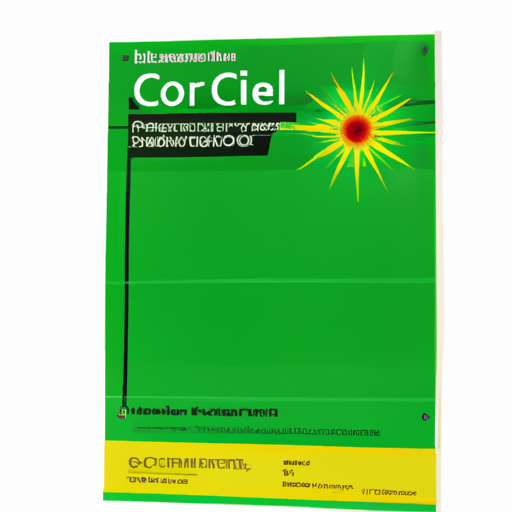What are the advantages of resistor-based products?
What are the Advantages of Resistor-Based Products?
I. Introduction
In the realm of electronics, resistors are fundamental components that play a crucial role in the functionality of various devices. Resistor-based products encompass a wide range of applications, from simple household gadgets to complex industrial machinery. This article aims to explore the advantages of resistor-based products, highlighting their significance in electronic circuits and their impact across multiple industries.
II. Understanding Resistors
A. Basic Principles of Resistors
At the core of resistor functionality lies Ohm's Law, which states that the current flowing through a conductor between two points is directly proportional to the voltage across the two points and inversely proportional to the resistance. This principle is essential for understanding how resistors control current flow in electronic circuits.
Resistors come in various types, including fixed resistors, which have a constant resistance value, and variable resistors, such as potentiometers, which allow for adjustable resistance. Each type serves specific purposes in electronic applications.
B. Common Applications of Resistors in Electronic Devices
Resistors are employed in numerous applications, including:
1. **Voltage Division**: Resistors can divide voltage in a circuit, allowing for the creation of reference voltages necessary for the operation of other components.
2. **Current Limiting**: They are used to limit the amount of current flowing through a circuit, protecting sensitive components from damage.
3. **Signal Conditioning**: Resistors help in shaping and conditioning signals, ensuring that they are suitable for processing by other electronic components.
III. Advantages of Resistor-Based Products
A. Cost-Effectiveness
One of the most significant advantages of resistor-based products is their cost-effectiveness. Resistors are relatively inexpensive to manufacture, primarily due to the availability of materials such as carbon, metal, and ceramic. The economies of scale in production further reduce costs, making resistors an affordable choice for both manufacturers and consumers.
B. Simplicity and Reliability
Resistor-based products are characterized by their straightforward design and implementation. The simplicity of resistors means that they can be easily integrated into various circuits without the need for complex configurations. Additionally, the minimal number of components in resistor-based designs leads to fewer points of failure, enhancing overall reliability. Resistors also boast a long lifespan and durability, making them a dependable choice for electronic applications.
C. Versatility
Resistors are incredibly versatile, finding applications across a wide range of industries. They can be used in everything from consumer electronics to industrial machinery. Their compatibility with various electronic components allows for seamless integration into diverse systems. Moreover, resistors can be customized in design, offering different resistance values to meet specific requirements.
D. Performance Characteristics
Resistor-based products exhibit excellent performance characteristics. They maintain stability under varying conditions, ensuring predictable behavior in circuits. This predictability is crucial for the reliable operation of electronic devices. Additionally, resistors generate low noise, which is essential in applications where signal integrity is paramount.
E. Thermal Management
Effective thermal management is another advantage of resistor-based products. Resistors have inherent heat dissipation properties, allowing them to manage heat generated during operation. This capability is particularly important in high-power applications, where excessive heat can lead to circuit damage. By preventing overheating, resistors contribute to the longevity and reliability of electronic devices.
F. Safety Features
Resistor-based products play a vital role in enhancing safety in electronic circuits. They provide overcurrent protection by limiting the flow of current, thereby preventing damage to sensitive components. Additionally, resistors are essential for voltage regulation, ensuring that components receive the appropriate voltage levels. This protective function is crucial in preventing component failure and ensuring the safe operation of electronic devices.
IV. Resistor-Based Products in Various Industries
A. Consumer Electronics
In the consumer electronics sector, resistors are ubiquitous. They are found in smartphones, computers, and home appliances, where they contribute to the functionality and performance of these devices. In audio and video equipment, resistors play a critical role in signal processing, ensuring high-quality sound and image output.
B. Automotive Industry
The automotive industry relies heavily on resistor-based products for vehicle electronics and safety systems. Resistors are integral to various applications, including fuel efficiency and emissions control. They help regulate current and voltage in critical systems, contributing to the overall safety and performance of vehicles.
C. Industrial Applications
In industrial settings, resistors are essential components in automation and control systems. They are used in manufacturing processes to ensure precise control of machinery and equipment. The reliability and versatility of resistor-based products make them indispensable in various industrial applications.
D. Medical Devices
Resistor-based products are also crucial in the medical field. They are used in diagnostic and monitoring equipment, where accuracy and reliability are paramount. Resistors help ensure patient safety by regulating electrical signals and preventing component failure in critical medical devices.
V. Future Trends in Resistor Technology
As technology continues to evolve, so too does the field of resistor technology. Innovations in materials and design are paving the way for more efficient and effective resistor-based products. The integration of resistors with smart technologies is also on the rise, enabling enhanced functionality and performance in electronic devices.
Moreover, environmental considerations and sustainability are becoming increasingly important in the development of resistor-based products. Manufacturers are exploring eco-friendly materials and production methods to reduce the environmental impact of resistor production.
VI. Conclusion
In summary, resistor-based products offer numerous advantages that make them essential components in electronic circuits. Their cost-effectiveness, simplicity, versatility, and reliability contribute to their widespread use across various industries. As technology advances, the relevance of resistors in modern applications remains strong, with exciting developments on the horizon. The future of resistor technology promises to bring even more innovative solutions to the ever-evolving landscape of electronics.
VII. References
1. Horowitz, P., & Hill, W. (2015). *The Art of Electronics*. Cambridge University Press.
2. Millman, J., & Halkias, C. (2010). *Integrated Electronics: Analog and Digital Circuits and Systems*. McGraw-Hill.
3. Sedra, A. S., & Smith, K. C. (2015). *Microelectronic Circuits*. Oxford University Press.
4. Razavi, B. (2016). *RF Microelectronics*. Prentice Hall.
5. Paul, C. R. (2010). *Introduction to Electromagnetic Compatibility*. Wiley.
This blog post provides a comprehensive overview of the advantages of resistor-based products, emphasizing their importance in various applications and industries. Each section can be further expanded with examples and case studies to enhance the depth of the discussion.






